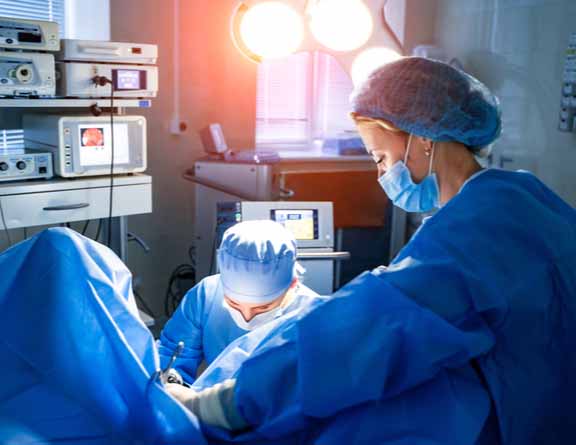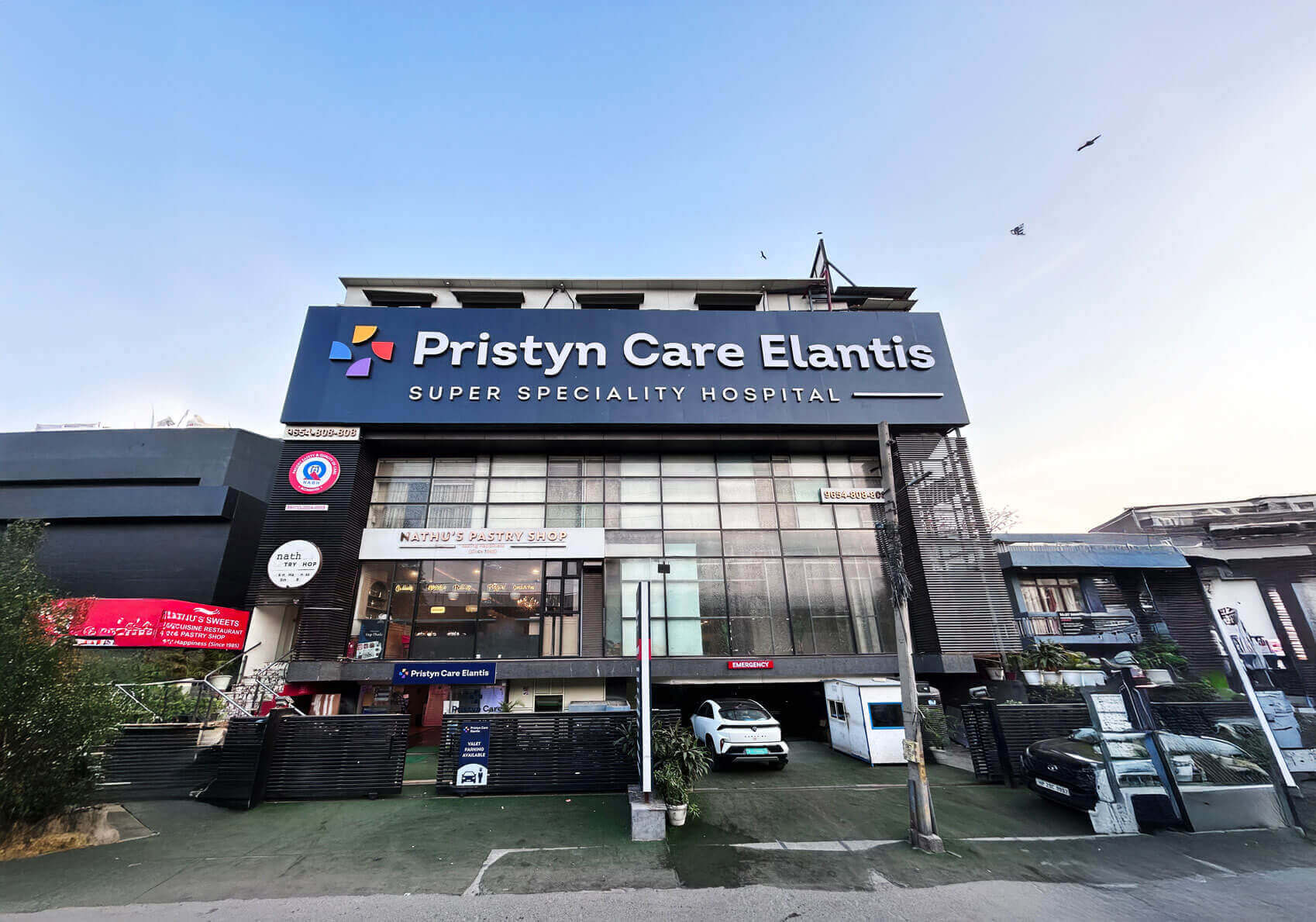
Delhi
USFDA Approved Procedures
Minimally invasive. Minimal pain*.
Insurance Paperwork Support
1 Day Procedure


Advanced Oculoplasty Surgery Options
Pristyn Care in Delhi provides advanced oculoplasty surgery options for those seeking medical and cosmetic improvements around the eyes.
Dacryocystorhinostomy, commonly referred to as DCR, is a surgical procedure aimed at treating blocked tear ducts. This condition can cause excessive tearing or frequent eye infections.
During the procedure, the surgeon creates a new channel between your tear sac and the inside of your nose. This helps tears drain properly, bypassing the blockage. Typically performed under local or general anaesthesia, DCR is often recommended when other treatments fail to alleviate symptoms.
Most individuals find relief from tearing after the surgery, experiencing improved comfort and reduced risk of infections.
Ptosis surgery is designed to correct drooping eyelids, a condition which can affect vision and appearance. This procedure involves tightening the muscles that lift the eyelids or reattaching them if they have become stretched or detached.
People of all ages can undergo ptosis surgery, depending on the severity of their condition. Typically performed under local anaesthesia, this surgery helps restore a natural eyelid position, significantly enhancing both the functionality and aesthetics of the eyes.
Recovery usually involves mild swelling and bruising, with most individuals resuming normal activities within a couple of weeks.
Blepharoplasty, or eyelid surgery, is a popular procedure focusing on removing excess skin, fat, or muscle from either the upper or lower eyelids. It’s often sought for aesthetic reasons but can also be necessary when droopy eyelids obstruct vision.
The surgery involves making precise incisions along the natural creases of your eyelids to ensure minimal visible scarring. After removing or repositioning tissues, the incisions are closed carefully.
Most patients notice immediate improvement in their appearance and experience long-term benefits in terms of clearer vision and a refreshed look. Recovery involves some bruising and swelling which typically subsides within a few weeks.
Eyelid reconstruction surgery is essential for correcting malpositions like entropion (inward-turning eyelids) or ectropion (outward-turning eyelids). These conditions can cause irritation and damage to the eyes if left untreated.
Eyelid repair typically involves repositioning or reconstructing the affected eyelid for proper alignment and functionality. Punctoplasty may be performed if tear duct openings need adjustment.
Surgery is usually quick, with most patients experiencing significant relief from symptoms once healed. Post-operative care is crucial, with follow-up visits for optimal recovery.
Orbitotomy refers to surgical procedures involving the orbit—the bony cavity surrounding your eye. It may be necessary to address conditions like tumours, cysts, or injuries within this area.
During an orbitotomy, surgeons access the orbit to remove lesions or repair damage while taking care to protect surrounding structures like nerves and muscles. Depending on its complexity, the procedure can be done under either local or general anaesthesia.
Recovery times vary based on the specific treatment but generally involve a period of swelling and discomfort before full recovery and return to everyday activities.


 NABH
NABH
Pristyn Care Elantis is dedicated to revolutionising surgical care. We combine the latest medical technology with highly skilled professionals and a patient-centric approach to transform the healthcare experience. Our team of doctors at Pristyn Care Elantis, strives to simplify the entire patient journey, ensuring a seamless process from diagnosis through recovery.
We offer specialised treatments across a wide range of medical fields, including proctology, laparoscopic surgery, ENT (ear, nose, and throat), vascular, gynaecology, urology, aesthetics, orthopaedics, ophthalmology, and weight loss solutions.
The Suites & Rooms at Pristyn Care Elantis are designed with your comfort in mind, offering a welcoming ambiance and top-notch amenities to make your stay as pleasant as possible.
Our highly skilled medical team, supported by advanced infrastructure, makes us a trusted choice for comprehensive healthcare solutions.
...Read More
Delivering Seamless Surgical Experience in India
Your safety is taken care of by thermal screening, social distancing, sanitized clinics and hospital rooms, sterilized surgical equipment and mandatory PPE kits during surgery.
A dedicated Care Coordinator assists you throughout the surgery journey from insurance paperwork, to free commute from home to hospital & back and admission-discharge process at the hospital.
Our surgeons spend a lot of time with you to diagnose your condition. You are assisted in all pre-surgery medical diagnostics. We offer advanced laser and laparoscopic surgical treatment. Our procedures are USFDA approved.
We offer free follow-up consultations and instructions including dietary tips as well as exercises to every patient to ensure they have a smooth recovery to their daily routines.
Oculoplasty surgery treats problems around the eyes. It includes work on the eyelids, tear ducts, and eye sockets. Doctors also use it for eyelid reconstruction surgery. This surgery helps improve eye function and appearance. It supports both medical and cosmetic needs.
Most people recover in 1 to 2 weeks. Bruising and swelling reduces in a few days. Doctors may suggest rest during the first week. You can return to daily tasks soon. Always follow your doctor’s care plan.
Doctors use anaesthesia during the surgery. This helps prevent pain. After surgery, you may feel mild discomfort. Your doctor may give pain relief if needed. Most people feel better in a few days.
Yes, you can walk after surgery. You should avoid heavy work or bending. Rest helps healing. Short walks are safe and useful. Always follow your doctor’s advice.
Yes, trained doctors perform this surgery safely. Risks are low with expert care. Clinics use clean and modern tools. Advanced oculoplasty treatment also lowers risks. Ask your doctor about any concerns.
People with droopy eyelids, tumours, or blocked tear ducts may need it. Some need it after injury. Others choose it to improve looks. Doctors suggest it after checking the problem.
In rare cases, results may not meet goals. Swelling or scarring may change the outcome. Choosing an expert doctor lowers this risk. The oculoplastic surgery procedure gives good results when done well.
Some people may get swelling, bruising, or dry eyes. These effects usually go away soon. Rare side effects include infection or scarring. Always follow your doctor’s aftercare plan.
Oculoplasty surgery includes different treatments for eye-related conditions. Eye surgeons in Delhi follow clear and safe steps for each type of surgery. They use modern tools and advanced techniques.
Here’s how doctors perform each oculoplastic surgery procedure:
Oculoplasty is a specialised procedure to improve the appearance and function of the eyes. To be eligible for this advanced oculoplasty treatment, several factors are considered:
Proper preparation can help with a smooth surgery and recovery. Here are some steps to take before your procedure:
After undergoing an oculoplastic procedure, knowing what to expect can ease your recovery process. Here’s how you can care for yourself post-surgery: